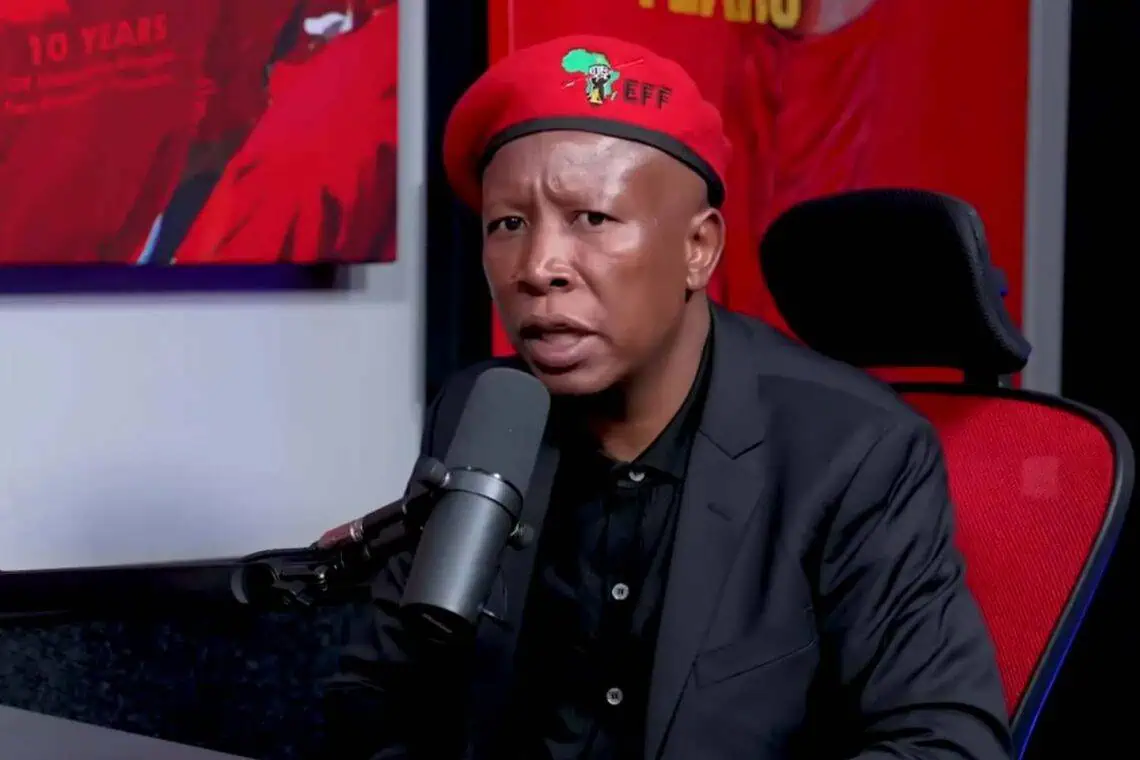In the volatile landscape of South African politics, few figures ignite as much passion and controversy as Julius Sello Malema, the leader of the Economic Freedom Fighters (EFF). On September 15, 2025, the release of Malema: Money. Power. Patronage by investigative journalists Pauli van Wyk and Micah Reddy reignited debate about Malema’s financial dealings. The book reveals an extensive property portfolio worth R21.6 million, allegedly built through opaque networks of patronage, tenders, and trusts. The disclosures sharpen scrutiny on political corruption, wealth inequality, and whether opposition leaders preaching radical transformation live by the values they espouse.
The Book’s Revelations: A Portfolio Built on Influence
Published by Black Bird Books in September 2025, the exposé traces Malema’s financial trajectory from his ANC Youth League days to his rise as EFF commander-in-chief. Central to the revelations is a property empire that includes luxury residences, farms, and commercial holdings. The book estimates their current combined value at R21.6 million.
- Sandton Mansion (Hyde Park/Sandown): Valued at over R10 million, featuring a private cinema, cigar lounge, and wine cellar. Bought in 2011 for R3.6 million cash despite Malema’s modest ANCYL salary. Funds allegedly channeled via the Ratanang Family Trust.
- Limpopo Holdings: Farms including Schuilkraal (R4m, via Gwama Properties linked to Lesiba Gwangwa) and Palmietfontein (R900k cash). Officially for cattle farming, but tied to Limpopo patronage networks.
- Polokwane & Seshego Properties: A R1.4m mansion in Faranani Estate, a Seshego home (R2m), and commercial plots worth R3m — traced to municipal tenders.
The authors argue that Malema’s acquisitions correlate with more than R140 million in government tenders between 2007–2008, won by companies such as On Point Engineering, Blue Nightingale Trading, and SGL Engineering. These firms secured contracts for waste management, sewer reticulation, and infrastructure projects — deals that allegedly enriched Malema and his allies.
From Tenderpreneur to EFF Leader
Born in Seshego, Limpopo, in 1981, Malema’s political career began at age nine in the ANC. By 2008, as ANCYL president, he was labeled a “tenderpreneur” for profiting off state contracts. Investigations by AmaBhungane linked him to at least 21 tenders in 2008–09, with funds allegedly funneled through the Ratanang Trust. His lavish 2011 Sandton mansion purchase raised red flags — paid largely in cash while he drew a modest official salary.
Further scrutiny tied Malema’s finances to the VBS Mutual Bank scandal, where associates allegedly diverted looted funds into his upkeep. By 2012, he faced expulsion from the ANC and asset seizures by SARS to settle R16m in tax arrears. Properties, including a R2.5m farm, were auctioned. Yet, after founding the EFF in 2013, Malema reemerged, registering assets via trusts and drawing a parliamentary salary exceeding R130,000 per month.
Allegations of Patronage and Funding
At the heart of the new book are claims of entrenched patronage. Malema’s allies allegedly secured municipal contracts, recycling proceeds through family and party-linked companies. Entities like Santaclara Trading, owned by cousin Jimmy Matlebyane, reportedly received millions in suspicious payments during the height of the VBS fallout. Although the Public Protector’s 2013 report flagged irregular contracts, probes by the Hawks stalled.
Critics argue such practices erode the EFF’s radical credentials. Malema’s net worth, estimated between R35m and R55m, includes luxury cars and designer watches — far beyond declared income. Supporters claim these are legitimate investments, but the book marshals deeds records, bank transfers, and insider accounts suggesting otherwise.
Public and Political Backlash
The revelations have ignited fierce public debate. On X (formerly Twitter), users accused Malema of “stealing from the poor,” while commentator Max du Preez described the book as a “bombshell.” The EFF dismissed it as propaganda, with Floyd Shivambu accusing van Wyk of bias, while Mbuyiseni Ndlozi encouraged pirating the book in retaliation.
AfriForum has also seized on the findings, linking Malema’s financial probes to his controversial “Kill the Boer” chants. Meanwhile, critics highlight the irony of a leader advocating land expropriation while personally holding farms. For many, this symbolizes the wider malaise of elite capture in post-apartheid politics.
Implications for South African Politics
The revelations come as South Africa navigates its Government of National Unity (GNU) experiment. While the EFF’s influence has waned since the 2024 elections, Malema remains a pivotal opposition figure. The allegations could trigger renewed scrutiny by SARS and the NPA, potentially damaging his anti-corruption narrative and bolstering rivals in the ANC and DA.
Ultimately, Malema’s R21.6 million property empire underscores the enduring challenge of political accountability. In a country where over 55% of citizens live in poverty, the revelations deepen distrust in leaders who enrich themselves while promising economic freedom. As van Wyk notes, Malema’s story is not just about one man — it is about “cash and politics,” and how power and wealth remain inseparable in South Africa.
Conclusion
Malema’s alleged property empire is more than a tale of personal luxury — it reflects systemic failures in governance and transparency. Malema: Money. Power. Patronage forces South Africans to confront a troubling paradox: Can leaders who rail against inequality truly escape the lure of enrichment? In the end, it raises a deeper question — in the fight for economic freedom, who really pays the price?
